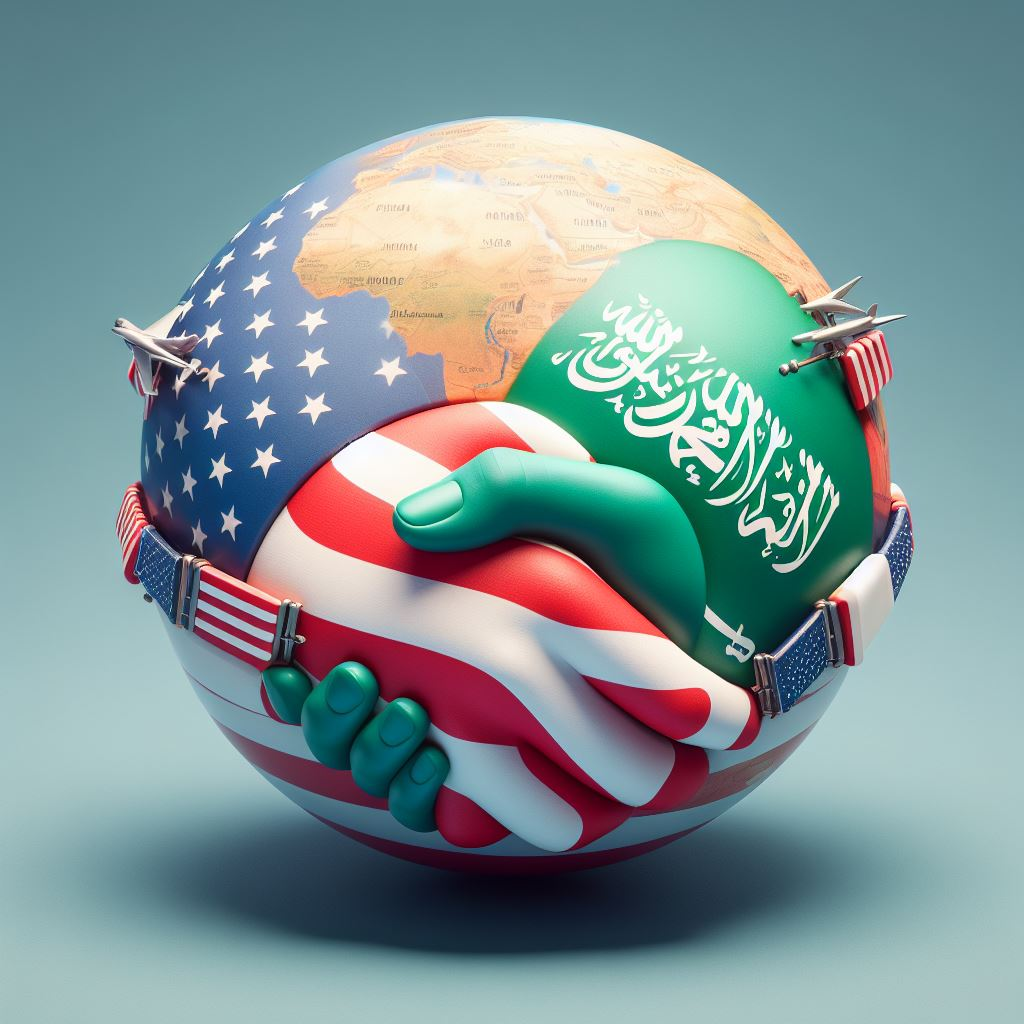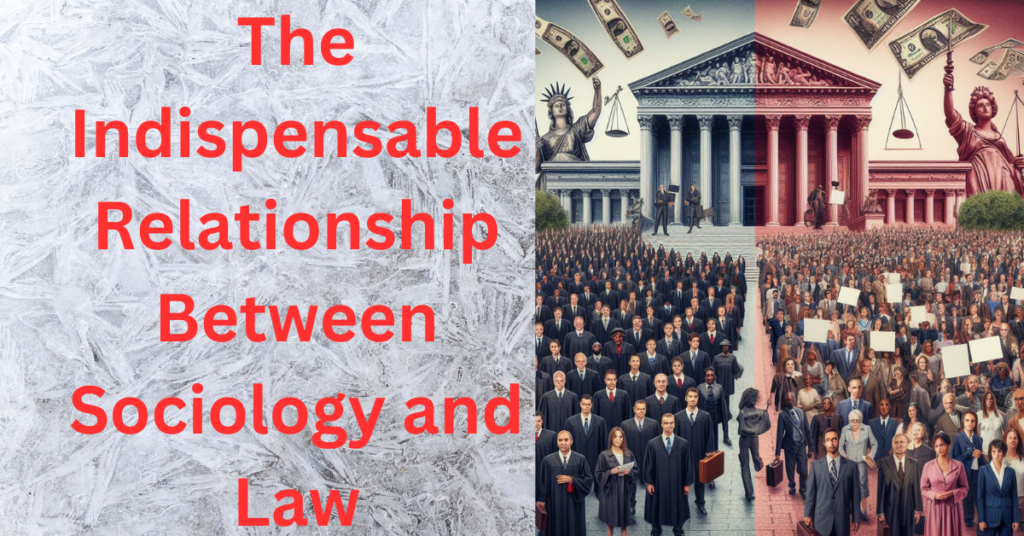Parth Raman & Diya Sehgal
In the landscape of international diplomacy, few relationships exemplify the tension between democratic values and strategic interests as starkly as that between the United States and Saudi Arabia. The dynamic between these two nations is a study in the delicate balance between promoting democratic ideals and safeguarding national security and economic stability.
At the heart of this dilemma lies the fundamental clash between America’s commitment to democracy and human rights and its strategic reliance on Saudi Arabia as a key ally in the Middle East. While the USA champions democratic values globally, it cannot overlook the strategic importance of Saudi Arabia in maintaining stability in the region, particularly in light of its vast oil reserves and geopolitical influence.

Democratic Dilemma
The democratic epitome that the USA represents often clashes with the authoritarian nature of the Saudi regime, which has been criticized for its record on human rights, including restrictions on freedom of expression, suppression of political dissent, and treatment of women and minorities. These disparities strain the diplomatic relationship and present a moral quandary for American policymakers.
Despite these challenges, the strategic partnership between the two countries endures, driven by shared interests in counterterrorism, regional security, and economic cooperation. Saudi Arabia remains a crucial ally in the fight against terrorism, providing intelligence and logistical support to US-led efforts in the Middle East and beyond.
Moreover, the economic ties between the USA and Saudi Arabia run deep, with bilateral trade and investment reaching billions of dollars annually. The kingdom’s role as the world’s largest oil exporter also ensures its significance in global energy markets, influencing not only economic considerations but also geopolitical dynamics.
However, the murder of Saudi journalist Jamal Khashoggi in 2018 brought renewed scrutiny to the relationship, amplifying calls for the USA to reassess its ties with Riyadh. The incident underscored the moral compromises inherent in the partnership and reignited debates over the prioritization of strategic interests versus human rights concerns.
Strategic Fronts
In navigating this complex dilemma, American policymakers must strike a delicate balance between upholding democratic principles and advancing strategic objectives. This requires a nuanced approach that acknowledges the importance of Saudi Arabia as a regional ally while also holding the kingdom accountable for its human rights record and promoting gradual reforms.
While the USA has historically valued stability and security in the Middle East, there has been a growing recognition of the need to address human rights concerns and promote democratic reforms in Saudi Arabia. This shift in perspective reflects evolving attitudes within American society and the international community regarding the intersection of strategic interests and moral imperatives.
Furthermore, the Biden administration has signaled a willingness to recalibrate the USA’s relationship with Saudi Arabia, emphasizing the importance of human rights and accountability in bilateral ties. This approach reflects a broader shift towards prioritizing democratic values in US foreign policy and holding allies accountable for their actions.
Conclusive Notes
Despite these efforts, the USA’s relationship with Saudi Arabia remains fraught with complexities and contradictions. While the two countries share common strategic interests, they also diverge on fundamental values and principles, creating tension and uncertainty in their partnership.
In conclusion, the USA’s relationship with Saudi Arabia encapsulates the inherent tensions and trade-offs inherent in diplomacy, where the pursuit of strategic interests often requires compromises on democratic ideals. As American policymakers navigate this complex landscape, they must strive to uphold the nation’s values while advancing its strategic objectives on the world stage. Only through a careful balance of pragmatism and principle can the USA effectively navigate the democratic epitome versus Saudi relations dilemma in the years to come. Additionally, as of now the ‘intrest’ of both the states are aligned but in geopolitics intrest can’t be permanent. In few decades what will be the relation of both the states? Eventually, with respect of time, if the need of the states will be deviated then in respect with my assumptions, the USA will make the first step to democracies the monarchical set-up of Saudi. Secondly, if the USA will set-up the new hub of Middle East, that to an Islamic State, then their can be diplomatic retaliation in Saudi Arabia against their monopoly in several fields and monarchy!
The views and opinions expressed by the authors in this article are their personal opinions and do not represent the views of PureSociology. You can contact the author/s at [email protected] and [email protected]. The details of the authors are:
Parth Raman is a Legal Scholar and Director of the Council for Policy Research and Analysis, New Delhi.
Diya Sehgal is a First-Year Law Student at the University Institute of Legal Studies, Chandigarh University. Along with that, she is an active Member of NITI, UILS, Chandigarh University.


